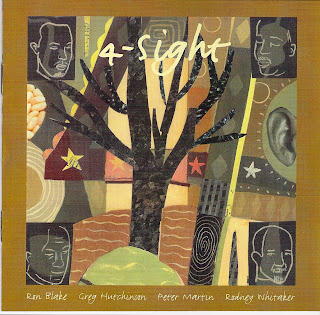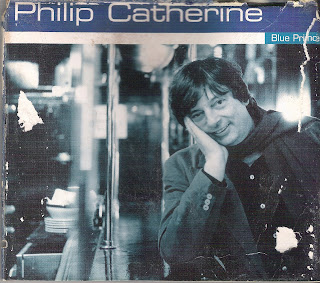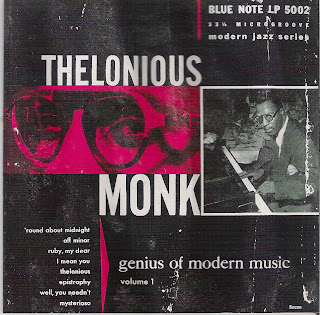That probably means I should just get to it...
Various Artists
Funkdamentals
I almost feel like I shouldn't have to listen to this album to consider it listened to. Thanks to a friend's parents growing up, I listened to all of this all through my childhood. Other people my age might have Thompson Twins or Depeche Mode or Wham! in their closet of shame--or maybe they have a bunch of metal bands they have that they guiltily admit that they really liked (or no guilt, who knows...), but I have this stuff. Before Jazz (and before a brief detour in early rap), there was Funk for me. In fact, Funk is why I played the sax. I saw a video with Clarence Clemens standing on a tall white pedestal playing the tenor sax and I thought, "Damn...that's my instrument, I want to play that!"
My vision was to stand in the horn section playing Earth, Wind and Fire or behind someone like James Brown. I wanted to be on that giant white pedestal growling out an eight bar solo in a funk or soul song. That was my very first image of my potential future self as a saxophonist. Obviously, that image evolved and I've talked about the various stages of that daydream before.
These are the songs I sing mindlessly when I'm completely idled. The "Give It To Me" chant..."Giveittomegivemethatstuffthatfunkthatsweetthatfunkystuff(give it to me!)" I don't really think about it. It's just the music in the back of my head. And since it's the first music I 'learned,' it shapes my tastes in music I like now.
The weird thing is that outside of funk, I really don't like dance music. And I absolutely don't dance to this or anything. I bob my head, but no dancing.
Man, I love Fantastic Voyage.
I don't know what the dancing thing is, really. I could come up with a bunch of excuses. It's not that I'm ashamed of my dancing (though it is, really, just awful)--I don't have the desire to dance (my brief romance with breakdancing aside--also, just awful). Dancing is one of those things where I don't know if I'm watching a good display of talent or I should put a wallet in the person's mouth to keep them from swallowing their tongue. I even took a graduate level class on dance analysis, nothing.
Do your dance, do your dance, do your dance QUICK! Cameo never managed to popularize the cod piece.
Familiarity is probably a big contributor to why this CD was never opened. I knew all these songs, I could play them back in my head pretty easily, there was no rush to get them on the player. No doubt they came home with something I hadn't really heard. Certainly it didn't come home during the Great Monster Rancher Play.
For record store employees who also loved their video games, Monster Rancher was a godsend. A video game where you make monsters from your own CDs? Couldn't be more perfect. In fact, the game was designed to get you to combine monsters and make them better that way, presuming I guess that people would run out of CDs to make monsters out of. For us, this was not a problem. We never really made it far in the game, we were too busy finding out what monsters all of our CDs made. We even had informal tournaments where we'd bring over ten CDs we hadn't put in yet, generate the monsters and have them fight it out for supremacy.
My champion monster came from Ornette Coleman's Free Jazz, a pretty spectacular Naga. It seemed fitting. I miss that game.
For all of the fawning over Funk, the only other just pure funk on my iTunes before the project is a couple of Funkedelic albums when I realized that I was losing them. I used to have the entire Funkedelic catalog, but they all went adrift and only two, Hardcore Jollies and The Electric Spanking of the War Babies, were saved.
Duke Ellington/Louis Armstrong
Selections from "The Complete Session"
This seemed too short to count as its own CD. This is another one of those advance promos where they don't even have the artwork sorted out or at the very least produced and they're not giving me the complete cd.
This is really a CD that was waiting for iTunes or related media player. Because there really wasn't going to be an instance where I was going to throw in a CD with four tracks, one of them with false starts and conversations to have in the background or something of that kind.
I guess if I had a multi-cd player, like my brief moment in my bus, then it would work.
This is another one of those legendary artist CDs where I don't really know what to say. I can't really comment on the sounds that everyone knows even when they don't listen to jazz.
I went through a heavy Armstrong phase for a bit when I was living in a house with a lot of roommates. One of my roommates was pretty into The Carpenters. This created a fusion in my head when bored at work and I started singing Carpenters songs in Armstrong's voice. It's a moment that delights me to this day. Try it, it's awesome.
4-Sight
4-Sight
I usually have been listening to the CD for a little bit before I start typing. The process goes, I pop in the CD, transfer it to the hard drive, get the Amazon player link, scan the cover, and then start assembling it into the blog. By then, the CD has digested and I've been listening to it for a little bit. Usually I've looked up anything I didn't know as well. I haven't done this one because I really didn't know who the hell it was and I kind of wanted to see what my reaction was going to be.
Turns out it's a progressive jazz quartet. Everyone in the group has managed to continue playing (and the bass player has apparently become a professor at Michigan State while playing bass in the Lincoln Center Orchestra.) But as this particular group, just this once.
Wow, on track four it got all fusion-y on me. Still a little funky though.
There were a few groups of like this when I was there, jazz combos with names (instead of the "So and So Quartet). I usually didn't see many follow up albums from most of them. In fact, Sex Mob is the only group I can think of that I saw two or more of.
Which isn't to say that these groups aren't any good, they are. I really like this, not as much as Black/Note, a group from the same period, but it's pretty good.


















